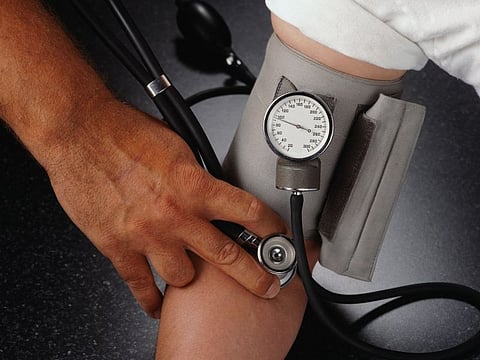THURSDAY, Aug. 17, 2017 (HealthDay News) -- The beneficial effects of intensive systolic blood pressure (SBP) treatment are similar among those with prediabetes and fasting normoglycemia, according to a study published online Aug. 9 in Diabetes Care.
Adam P. Bress, Pharm.D., from the University of Utah in Salt Lake City, and colleagues conducted a post hoc analysis of data from the Systolic Blood Pressure Intervention Trial. The study assessed the effects of intensive (<120 mmHg) compared with standard (<140 mmHg) SBP treatment among 3,898 patients with prediabetes (fasting serum glucose ≥100 mg/dL) versus 5,425 patients with fasting normoglycemia (fasting serum glucose <100 mg/dL) at baseline.
The researchers found that over a median 3.26 years of follow-up, the hazard ratio for the primary outcome of composite cardiovascular disease (CVD) outcomes (myocardial infarction [MI], acute coronary syndrome not resulting in MI, stroke, acute decompensated heart failure, or death from CVD causes) was 0.69 (95 percent confidence interval, 0.53 to 0.89) among those with prediabetes and 0.83 (95 percent confidence interval, 0.66 to 1.03) in those with normoglycemia (P value for interaction = 0.3). The hazard ratio for all-cause mortality with intensive SBP treatment was 0.77 (95 percent confidence interval, 0.55 to 1.06) for prediabetes and 0.71 (95 percent confidence interval, 0.54 to 0.94) for normoglycemia (P value for interaction = 0.74). The effects of intensive versus standard SBP treatment were not significant for prespecified renal outcomes and serious adverse events.
"The current SPRINT analysis demonstrates that the beneficial effects of intensive SBP treatment on CVD events and all-cause mortality extend to patients with prediabetes," the authors write.
Several authors disclosed financial ties to pharmaceutical companies, including Takeda, which provided study medications.
Abstract/ Full Text (subscription or payment may be required)


